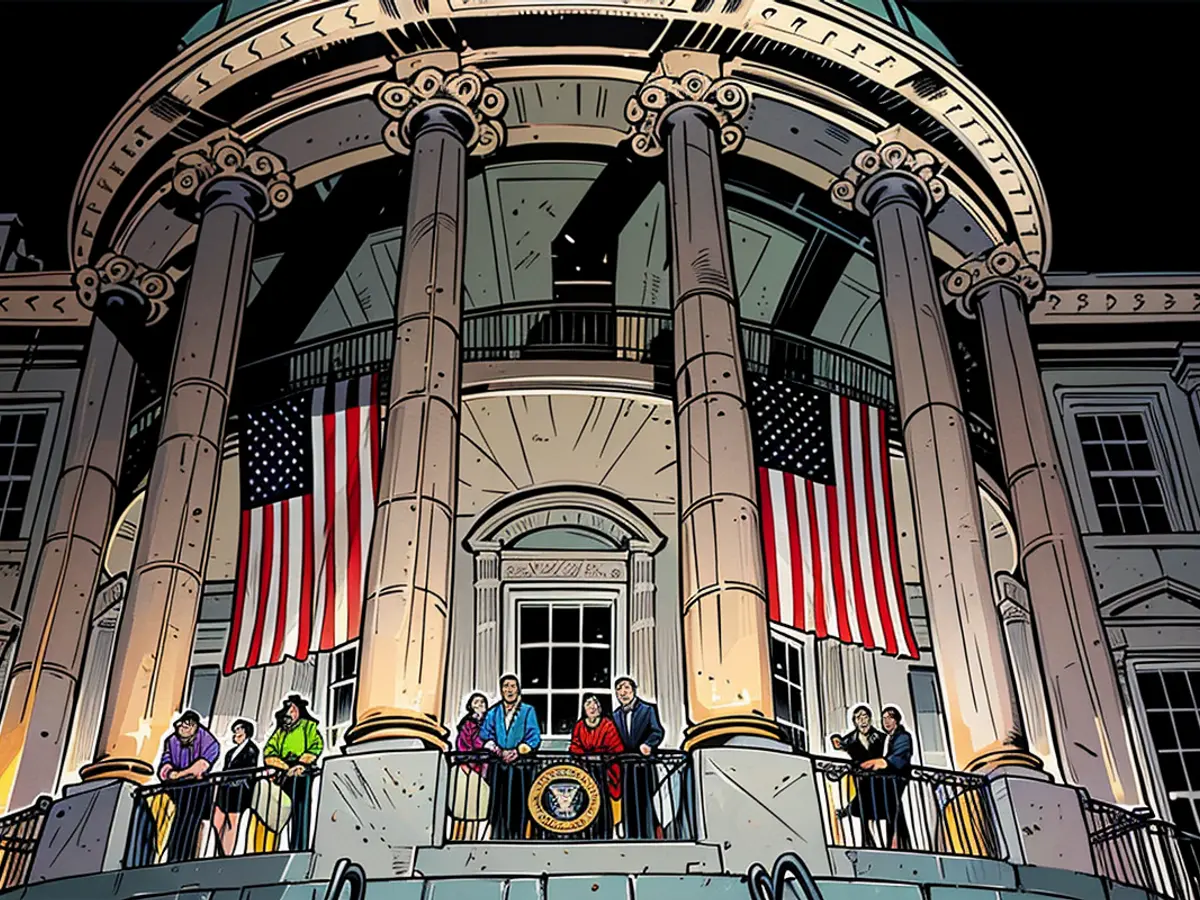The Democrats are left with two scenarios - one leads to chaos
Joe Biden's Presidency will end in the fall. The Democrats must now find another challenger to Trump. The party can close ranks behind Vice President Harris - or open up to new candidates and power struggles.
After President Joe Biden announced his decision to end his re-election campaign, the Democrats have two possible ways to choose a successor. Vice President Kamala Harris, technically speaking, is not automatically Biden's replacement as a candidate in the US Presidential race. The Constitution sets that the Vice President becomes President when the real President dies or becomes incapacitated. However, the Constitution does not regulate the intraparty process of candidate selection.
Harris has already expressed her readiness to be the Democratic Party's nominee. "I feel honored to have the President's support, and I have the intention to earn and win this nomination," Harris stated in a written statement.
The first scenario for the candidate selection is the simpler solution: The Democrats would conduct a virtual convention in early August to determine a new candidate. The second option is an "open" convention - a scenario the party has not experienced since 1968. This would occur if no candidate arrives with a clear majority of delegates, causing the event to turn into a mini-primary. The candidates would then try to convince the delegates to vote for them.
The Democrats' time is running short, as some state elections have deadlines in August, and early voting begins in some places in September. Party leaders are likely to try to settle the nomination before the Democratic National Convention, which begins on August 19.
The further course could be quite rapid, but also complicated. With Biden having already expressed his support for Harris, the party leadership will try to convince the delegates to agree on Harris. In the virtual convention, she would need to secure a majority of delegate votes. If that fails, the decision will fall to the convention.
There are thousands of delegates, who officially decide on the party's candidate, regardless of whether there is an open convention or not. In general, they vote for the winner of the primaries. It seems that the delegates would directly elect the candidate. Since Biden has dropped out of the race, all his delegates are now free and can vote for any candidate without the delegates' input.
Superdelegates tipping the scales?
There are two types of delegates: The pledged delegates make up the majority of the votes, totaling 3,949. These are elected representatives from each state, who are supposed to act in the interest of their respective state's citizens. However, according to party rules, there is some room for maneuver in the decision-making process. That is: The delegates who voted for Harris in the primaries are not obliged to support her.
The Superdelegates - a total of 749 - are the most prominent leadership figures of the party. They have assumed this role based on the offices they hold or have held. This group includes former presidents and vice presidents, democratic governors, members of Congress, and party functionaries. They are not bound to any candidate and cannot vote in the first round of balloting at the convention.
Superdelegates may not even need it. Biden supports Vice President Harris, which could significantly tip the scale towards unity. His nearly 3,900 delegates are not bound to support Harris, but they were elected based on their loyalty to him and could heed his request, especially since Harris is already on the campaign ticket Biden/Harris, which the primary voters have chosen.
Open Convention would allow power plays
If there is no agreement by the Congress, however, the Democrats would hold their first open and contested convention since 1968. That convention also took place in Chicago and ended disastrously, leading the party to revise the way it selects its candidates.
The open convention would then proceed as follows: The candidates would first need 300 delegate votes to enter the race. No more than 50 votes could come from the same state. If there are challengers, backroom maneuvers and deals would run rampant, while party bosses from individual states would try to consolidate their delegates into voting blocks.
Once everyone is in Chicago, the candidates and their surrogates would likely not limit their searches for delegates to the convention hall, but also hotels, bars, and other hiding places.
In the first round of voting, one candidate would need to secure a majority of the votes (more votes than all other competitors combined) to be nominated as the presidential candidate. If that fails, another round of voting would take place, this time with the involvement of superdelegates. At this point, much is up for negotiation, as the party powerbrokers hold significant influence. Multiple voting scenarios would then be carried out as necessary. In 1924, the Democrats needed 103 ballots to agree on John Davis - who then lost the election. An open convention at the convention would more likely contribute to party division rather than demonstrating unity.
After Joe Biden announced his decision not to seek re-election, the Democrats face a crucial decision: either nominate Vice President Harris at a virtual convention in August or engage in an "open" convention with multiple candidates, as was last seen in 1968. While Superdelegates, such as former presidents and vice presidents, are not bound to any candidate, Biden's support for Harris could significantly influence their votes, potentially tipping the scale towards unity.








